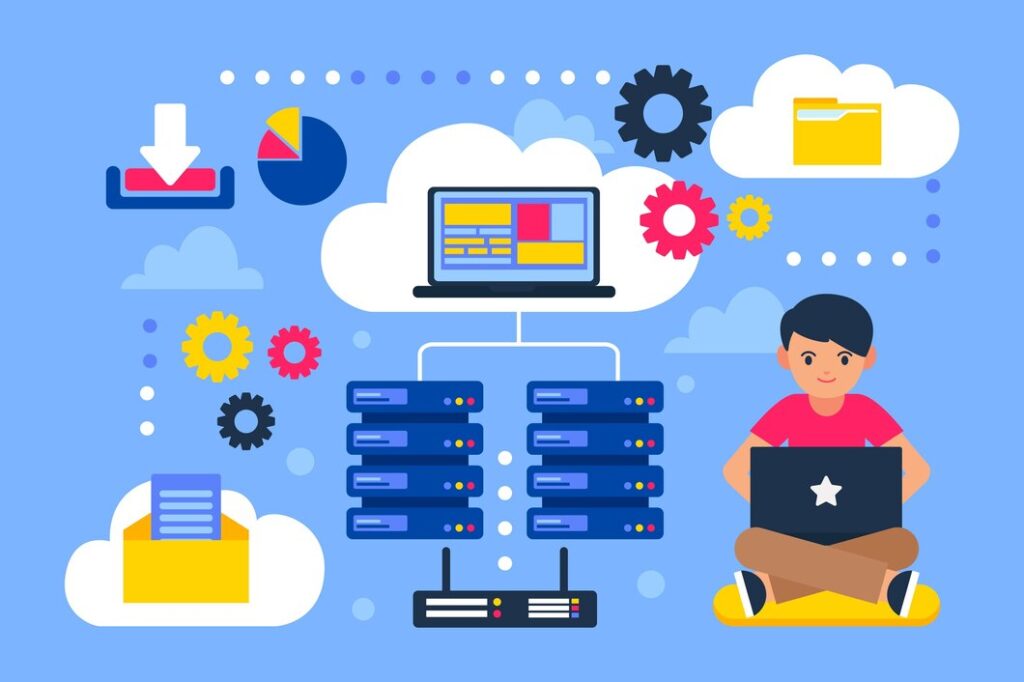Introduction
Microsoft SQL Server Analysis Services (SSAS) empowers IT professionals to create semantic models over large, integrated datasets for end-user consumption. It’s part of the broader SQL Server Business Intelligence (BI) suite and offers two primary modes: Multidimensional and Tabular.

Main Features
Flexibility:
- Analysis Services provides flexibility and supports both tabular models (columnar and in-memory) and multidimensional models (cube-based with dimensions, measures, and hierarchies).
Querying and Reporting:
- Analysis Services provides a platform for querying data using tools like Power BI, Excel, and Reporting Services reports.
- Users can build interactive reports and visualizations based on Analytical Cube data.
Multi-dimensional Data Modeling:
- SSAS focuses on creating and managing analytical databases with multidimensional models.
- These models allow organizations to perform complex data analysis and gain insights from large datasets.
Multidimensional vs. Tabular Cube
Multidimensional:
- Uses a cube-based approach with dimensions, measures, and hierarchies.
- Supports MDX (Multidimensional Expressions) for querying.
- Suitable for complex business logic and large-scale enterprise solutions.
- Pros of multidimensional cubes include advanced calculations (e.g., time intelligence) and KPIs, as well as hierarchies for better security features.
- The cons of Multidimensional Cube are higher memory requirements and a slower development cycle.
Tabular:
- Tabular models are columnar and in-memory, providing fast query performance.
- Built on the VertiPaq engine.
- Supports DAX (Data Analysis Expressions) for calculations.
- Ideal for self-service BI and small-to-medium-sized datasets.
- The Pros of Tabular Cube are its simplicity, ease of use, faster development, and better integration with Power BI and Microsoft Excel.
- The cons of Tabular Cube are limited advanced features and less suitable for complex scenarios.

OLAP Workflow
Data Source:
Connect with various data sources such as SQL Server, Excel, or other databases.
Data Modeling:
Define relationships, hierarchies, and measures.
Processing:
Load data into SSAS.
Cube Design:
Create dimensions and cubes.
Deployment:
Deploy to SSAS server.
Query and Reporting:
End-users query the cube using tools like Excel, Power BI, or custom applications.
Key Benefits of SSAS
- Performance: In-memory processing for faster queries.
- Self-Service BI: Empowers business users.
- Security: Role-based access control.
- Scalability: Handles large datasets.
Advantages & Disadvantages
Advantages:
- Simplified data modeling (Tabular).
- Integration with Power BI.
- Strong security features.
Disadvantages:
- Memory-intensive (Multidimensional).
- Limited advanced features (Tabular).
Why Do Businesses Use SSAS?
- Efficient Reporting: Faster query performance.
- Business Insights: Analyze data for informed decisions.
- Consolidation: Combine data from various sources.
- Predictive Analytics: Forecast trends.
SQL Server Analysis Services is a powerful tool for creating semantic models, enabling better decision-making and insights and enhancing your Business Intelligence capabilities.
Industries Relying on SSAS
Manufacturing:
- Manufacturers use SSAS to analyze production efficiency, supply chain data, and quality control.
- SSAS allows multidimensional analysis, helping optimize processes and resource allocation.
Finance and Banking:
- Financial institutions rely on SSAS for risk analysis, portfolio management, and fraud detection.
- SSAS enables efficient reporting and helps financial analysts make informed decisions.
Technology and IT:
- Technology companies benefit from Analytical Cubes for business intelligence, trend analysis, and forecasting.
- Analytical Services enhances decision-making by providing self-service analytics and multidimensional views.
Retail and Consumer Goods:
- Retail companies leverage SSAS for sales analytics, inventory optimization, and customer behavior insights.
- SSAS cubes provide ad hoc reporting speed and allow users to slice, dice, and drill down into data.
SSAS Implementation
Knowing the benefits of an SSAS is one thing and reaping those rewards is another. But don’t worry, we’re here to help to fully leverage SQL Server Analysis Service potential. Our tailored SSAS implementation services can bring success to your business through every process step. Our experienced team ensures seamless integration with your existing systems, providing customized solutions that meet your needs. Don’t just take our word for it – clients from the Manufacturing Industry have seen a 43% boost in productivity and a significant reduction in reporting time after partnering with us.
How it Works
Step 1: Schedule your meeting
Let’s discuss how we can help; schedule your meeting today.
Step 2: We handle the details
Let us manage the details for you. Focus on your core tasks while we take care of the rest.
Step 3: Collaborate, Create & Excel
Work together seamlessly to innovate and achieve your goals. Let’s collaborate, create, and excel together.
Button